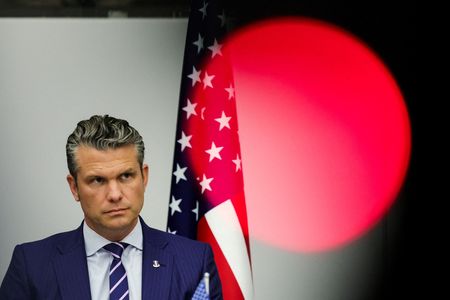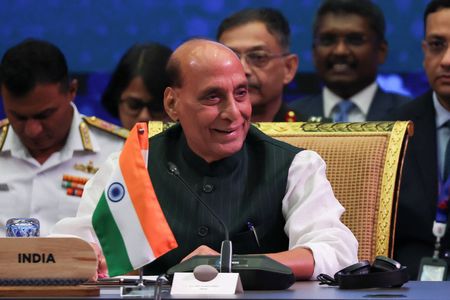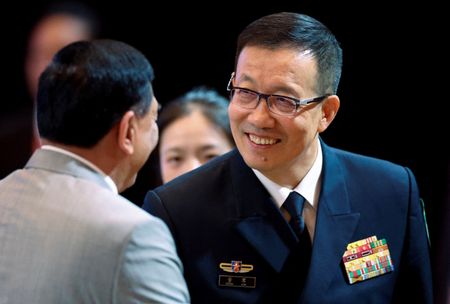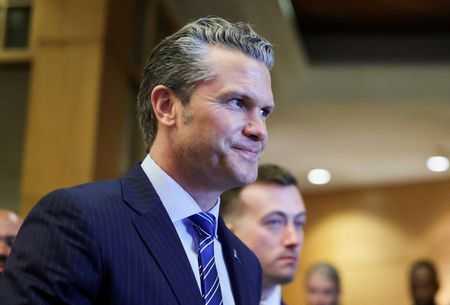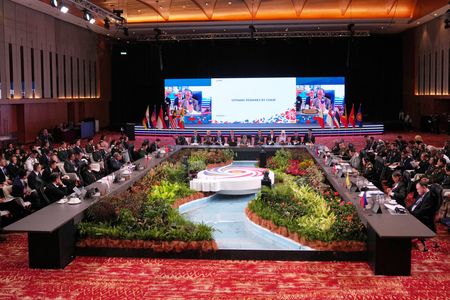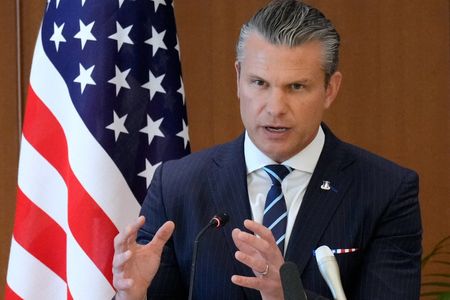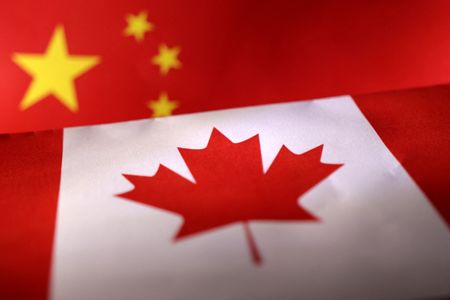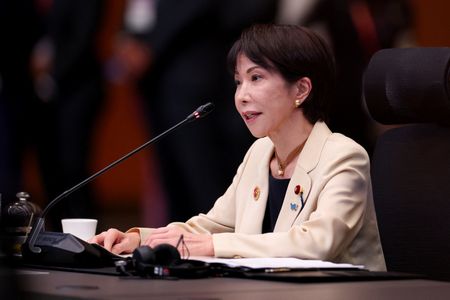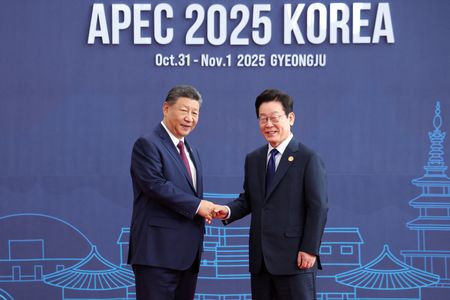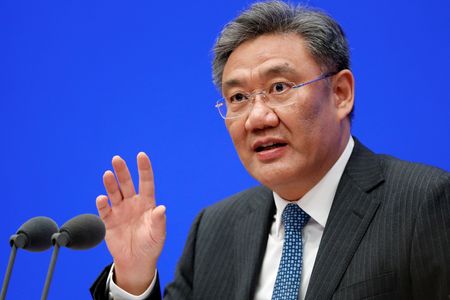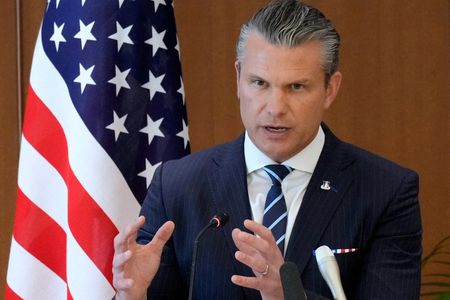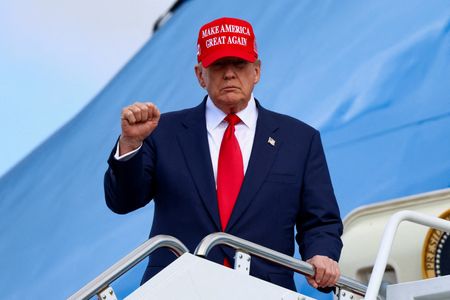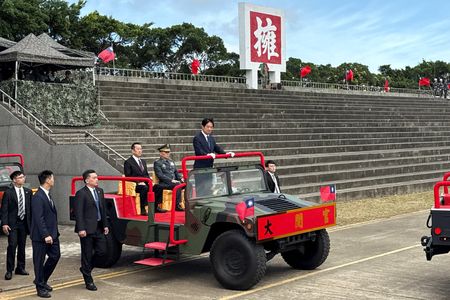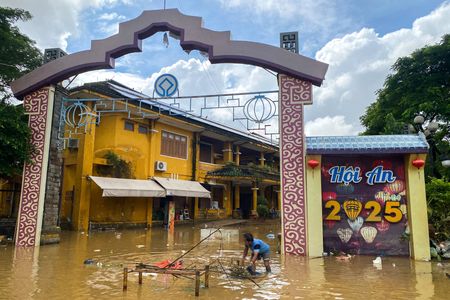By Danial Azhar
KUALA LUMPUR (Reuters) -U.S. Defense Secretary Pete Hegseth spoke on Friday with counterparts from China and India, beginning a series of face-to-face meetings at an ASEAN defence summit in Malaysia, as Washington seeks to boost regional security ties.
Hegseth said on X he told China’s Dong Jun the United States would “stoutly defend its interests” and maintain the balance of power in the Indo-Pacific, while voicing concern about Chinese activities in the disputed South China Sea and around Taiwan.
He also hailed as “a cornerstone for regional stability and deterrence” a new 10-year defence cooperation framework signed with Indian defence minister Rajnath Singh.
“It’s a significant step for our two militaries, a roadmap for deeper and even more meaningful collaboration ahead,” Hegseth told reporters after the signing.
Hegseth and Singh were meeting for the first time since the United States imposed tariffs of 50% on Indian goods in August as punishment for New Delhi’s purchases of Russian oil.
The tariffs prompted India to pause purchases of U.S. defence equipment, with the two sides expected to discuss on Friday a review of India’s plans to buy the military hardware.
As Washington looks to tackle China’s growing assertiveness in the region, Hegseth is expected to meet the defence ministers of Indonesia, the Philippines and Thailand, among others, said an official, who spoke on condition of anonymity.
Delegations from Australia, New Zealand, South Korea and Russia are attending the meeting of defence ministers from the Association of Southeast Asian Nations.
CHINESE GREY-ZONE TACTICS
Hegseth met Malaysia’s defence minister on Thursday and both leaders committed to maritime security in the South China Sea.
The busy waterway is claimed almost entirely by China, although it overlaps the exclusive economic zones of Brunei, Indonesia, Malaysia, the Philippines and Vietnam.
Beijing has deployed a coast guard armada that has clashed repeatedly with Philippine vessels and been accused of disrupting the energy activities of Malaysia and Vietnam.
“Grey-zone tactics, such as hydrographic research conducted under the protection of foreign coast guard vessels, threaten sovereignty and are a clear provocation and threat,” Malaysian minister Mohamed Khaled Nordin said in a joint statement.
Unresolved disputes have festered for years over the sovereignty of islands and features in the South China Sea.
Beijing says its coastguard has operated professionally in defending Chinese territory from incursions.
The United States has sought to shore up its presence in Southeast Asia to counter China’s growing influence.
On Sunday, President Donald Trump told ASEAN leaders the United States was “with you 100% and we intend to be a strong partner for many generations”.
Washington has a defence pact with the Philippines that involves dozens of annual military drills and use of some of its bases, in addition to similar exercises with Thailand and Indonesia and exchanges with Malaysia.
ORDER TO RESUME NUCLEAR WEAPONS TESTING
Shortly before meeting Chinese counterpart Xi Jinping on Thursday, Trump said he had ordered the U.S. military to resume nuclear weapons testing amid a rapid expansion of China’s nuclear stockpile.
ASEAN was consistently opposed to nuclear weapons and was working to get all five nuclear weapons states to endorse a nuclear-free zone in Southeast Asia, Secretary-General Kao Kim Hourn told reporters on Friday, when asked about the resumption.
The Trump administration’s efforts to persuade its allies to spend more on defence have also caused friction, but Japan’s Prime Minister Sanae Takaichi told the U.S. President this week that she was determined to boost defence capabilities.
On Wednesday, Hegseth urged Japan to hasten plans to boost defence spending to 2% of GDP, saying the alliance between Washington and Tokyo was “critical to deterring Chinese military aggression”.
(Reporting by Danial Azhar; Additional reporting by Idrees Ali in Washington and Shivam Patel in New Delhi; Writing by David Stanway; Editing by Clarence Fernandez)

